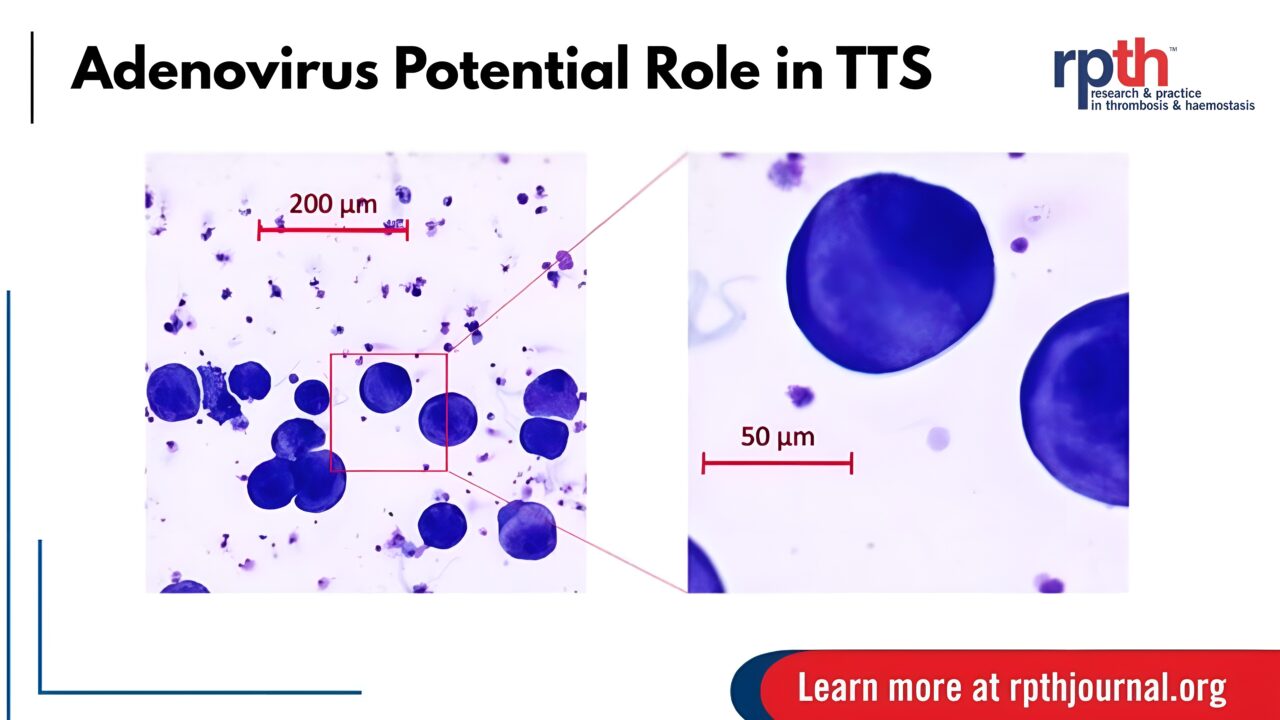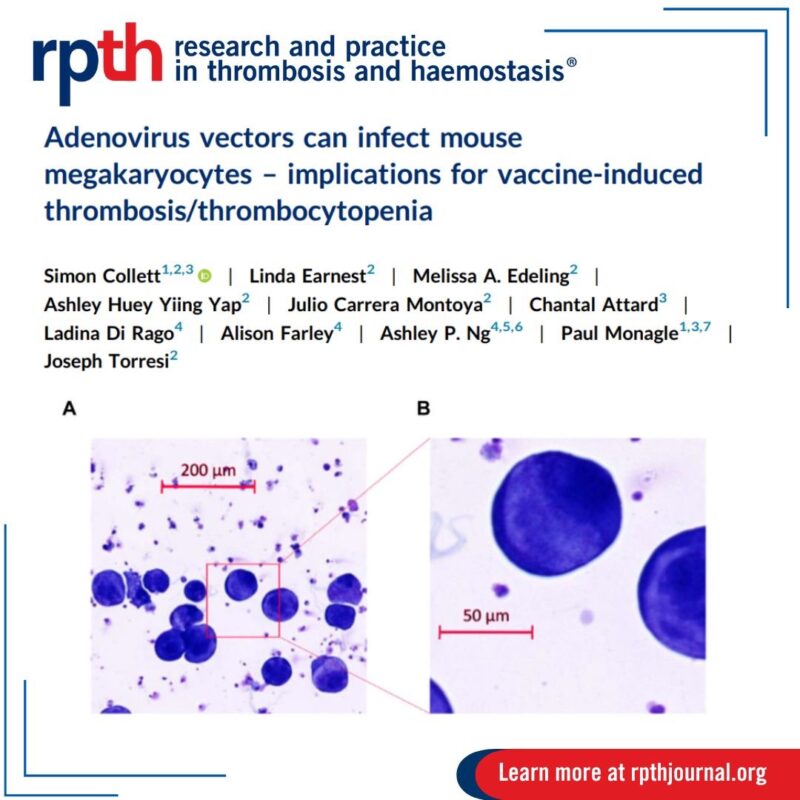
1 Hypothesis, Multiple Implications: Adenoviral Vector Vaccines and Thrombosis with Thrombocytopenia Syndrome
The RPTH Journal (Research and Practice in Thrombosis and Haemostasis) shared an insightful post on LinkedIn:
”This new study investigates adenoviral vector vaccine-associated thrombosis/thrombocytopenia risk.
- Adenoviral vectors can infect megakaryocytes
- Concurrent infection may increase chemokine receptor expression
Senior Author: Joseph Torresi”
Read the full article here.
In the article ”Adenovirus vectors can infect mouse megakaryocytes – implications for vaccine-induced thrombosis/thrombocytopenia” by Simon Collett, Joseph Torresi et al. in the RPTH Journal, a potential role of adenoviral vector vaccines in inducing TTS is discussed.
Adenoviruses, adenoviral vector-based vaccines, and gene delivery systems have been associated with thrombosis with thrombocytopenia syndrome (TTS), a rare but serious complication.
The precise mechanisms underlying this condition remain unclear.
It was previously hypothesized that megakaryocytes (MKs)—the precursor cells responsible for platelet production—play a central role in the development of adenovirus- or vector-induced TTS.
Emerging evidence supports the notion that MKs are a heterogeneous population, including subsets with distinct immune-related functions.
This study demonstrates that adenoviral infection preferentially targets higher-ploidy CD41⁺CD42⁺ MKs and those expressing high levels of CXCR4 (CXCR4^hi).
These findings implicate specific MK subsets and surface receptors in the cellular response to adenoviral exposure and provide a potential mechanistic link to thrombocytopenia and thrombotic events observed post-vaccination or gene therapy.

Find all the latest scientific advancements in the World of Thrombosis posted in Hemostasis Today.
-
Feb 2, 2026, 17:54Danny Gaskin: Nominations are Open for the BBTS Transfusion Practitioner Special Interest Group Award 2026
-
Feb 2, 2026, 17:44Important Webinar on Care for Patients with iTTP – ISTH
-
Feb 2, 2026, 17:21Tagreed Alkaltham: Some Risks Don’t Look Like Risks in Healthcare
-
Feb 2, 2026, 17:16Sifat Jubaira: Effect of Prolonged Tourniquet Application
-
Feb 2, 2026, 17:14Vivek Mahto: Understanding Deep Vein Thrombosis – Causes, Symptoms, and Prevention
-
Feb 2, 2026, 17:08Tareq Abadl: Heparin vs Warfarin
-
Feb 2, 2026, 17:07Mary Cushman: New Research on Aspirin Use in Pregnancy and Stroke Risk in Offspring
-
Feb 2, 2026, 16:52Aravind Palraj: Young Stroke is Never Just Stroke
-
Feb 2, 2026, 16:48Seyed Mohsen Jahromi Moghadam: Antithrombotic Therapy After Transcatheter Structural Heart Interventions

